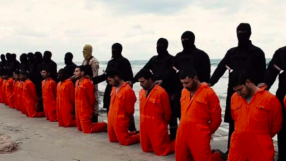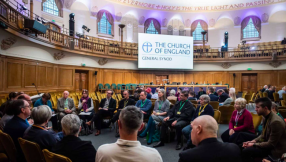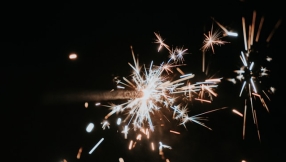The Vatican is to open its files about military rule in Argentina to victims of the regime and their relatives. Around 3,000 letters between the Catholic Church and family members of the dictatorship's victims during the 'Dirty War' (roughly 1974-83) are held in Vatican archives and by the Argentine bishops' conference. According to the Vatican, Pope Francis has taken the decision himself "in the service of truth, justice and peace".
Unpack this a little. How bad was the dictatorship?
Pretty bad. The army had assumed control in the country after a coup against Isabel Peron's government in 1976. Its so-called 'Dirty War' was state terrorism designed to stamp out left-wing ideology. The regime used intimidation, torture and murder on a grand scale; up to 30,000 people died. A favoured method of "disappearing" people was to take them up in aeroplanes and helicopters, strip them and throw them out. So many were disposed of in this way that neighbouring Uruguay complained about the number of bodies that were being washed up.
I remember something about the Mothers of the Plaza de Mayo?
Yes. They're a courageous protest movement made up of mothers who lost children to the regime and never found out what happened to them. Some of these were babies, taken from their mothers at birth by the regime, on the grounds that their parents were leftists. They were given to regime loyalists to raise as their own.
And what was the Church doing?
Its history is a bit chequered. Many in the Catholic heirarchy were ideologically opposed to anything smacking of left-wing thinking, so they didn't mind the government cracking down on these Marxist revolutionary types. Priests were involved in torture at concentration camps; one prison chaplain, Christian von Wernich, was sentenced to life imprisonment after being found guilty of complicity in seven murders, 42 kidnappings and 32 instances of torture. But others, particularly priests who lived closer to the poor, were far more sympathetic. Some were martyred; others were arrested and tortured. It's not known what the letters to the Church heirarchy from victims' families say, but it's safe to assume many were asking for help. They may not have met with much sympathy.
Pope Francis was a bishop in Argentina then, I think?
Yes, and his history is a bit chequered too. One of the things that continues to tarnish his teddy-bear image is the behaviour of Jorge Bergoglio, as he was then. Known then as authoritarian and reactionary, he has been accused of complicity in the arrest and torture of two priests, Franz Jalics and Orlando Yorio. He dissolved the Jesuit community of which they were a part and left them exposed to arrest. They were duly kidnapped and taken to the notorious Escuela de Mecanica de la Armada (ESMA) where they suffered appallingly at the hands of torturers trained by the US and France.
That's awful. Was he really responsible?
Probably not entirely. Jalics and Yorio both thought so at the time, though Jalics later changed his mind and was reconciled to him. Journalist Paul Vallely analyses the issue in his book Pope Francis: Untying the Knots and concludes he made serious mistakes, but didn't intend what happened – and he did protect many who would otherwise have fallen victim to the regime. Bergoglio's attitude to the 'disappeared' of the Plaza de Mayo is less explicable; he refused to attend at a key trial and gave "minimalist" and evasive answers when he was cross-examined in his office.
So is Pope Francis really a bad man?
He is a sinner, as he has said more frequently than any other pope in living memory, and there are many who remain unconvinced about his role under junta. Others regard him as a courageous man who did what he could. Vallely concludes: "Whatever judgments others have made of the role of Jorge Mario Bergoglio, they probably do not match the one he has made of himself before God in prayer."
And will the documents the Vatican and the Argentine bishops are releasing clear anything up?
One of the running sores the Church has faced is the suspicion that it's not telling everything it knows. There's no indication that Pope Francis is personally implicated in any of these letters, but transparency – even if what it reveals doesn't reflect well on the Catholic Church – has got to be better than secrecy. On this theme, President Obama pledged earlier this year that the US would reveal more about its own role in the Dirty War, long classified but widely suspected.













